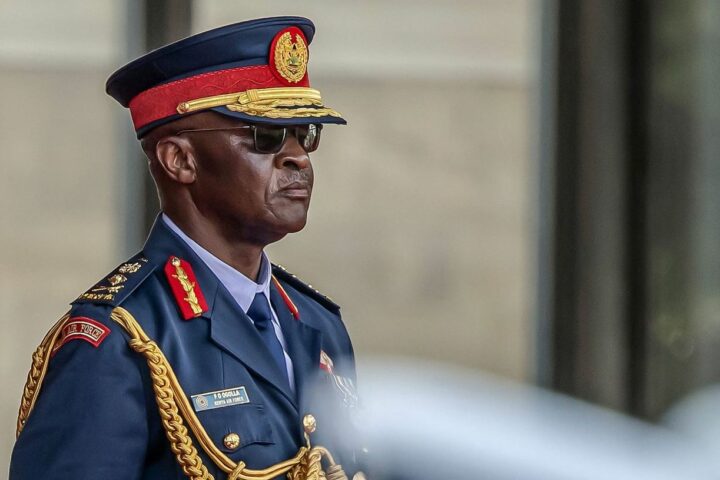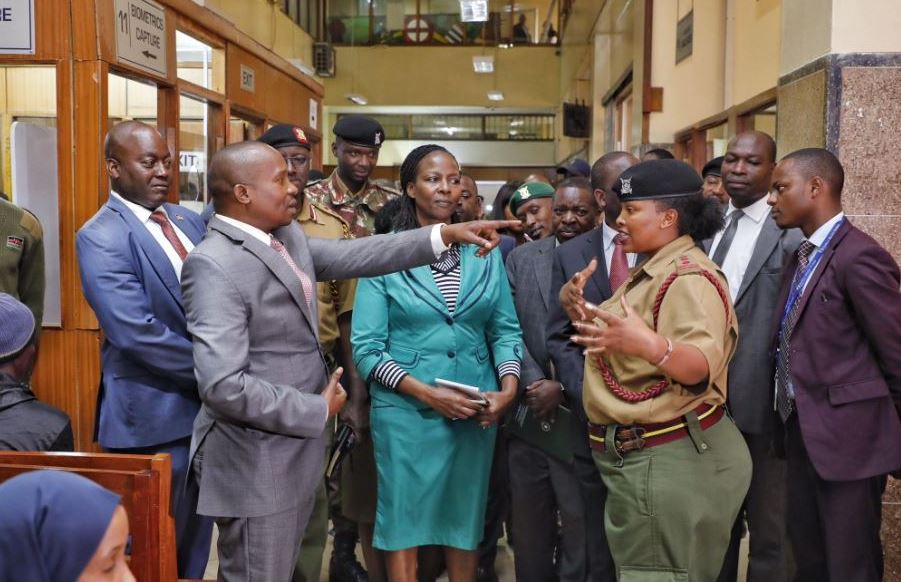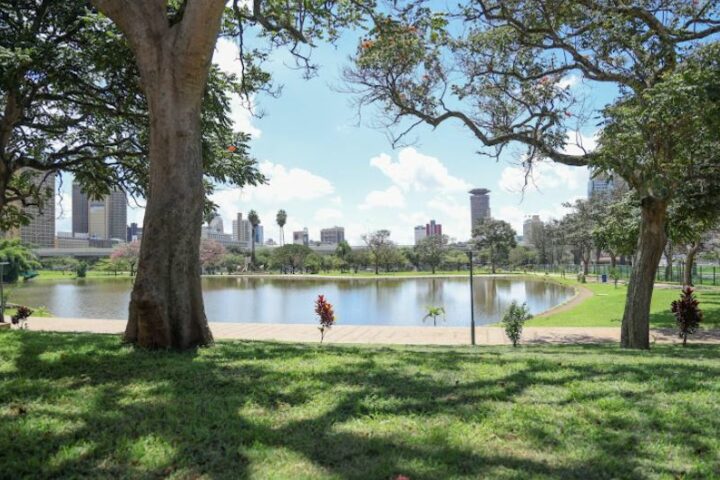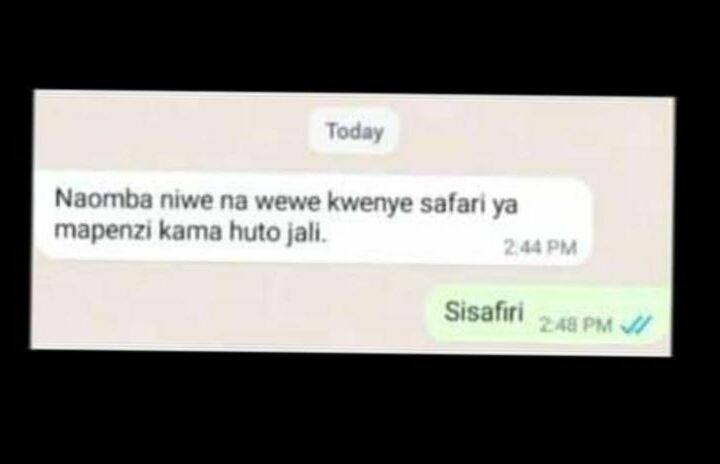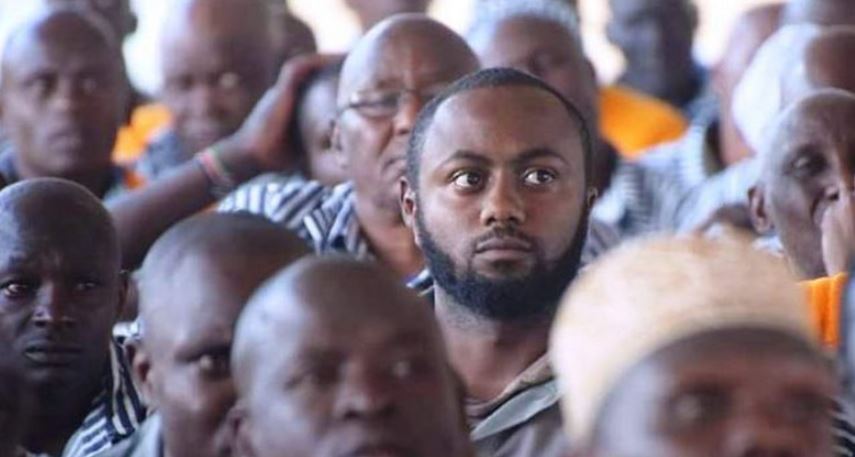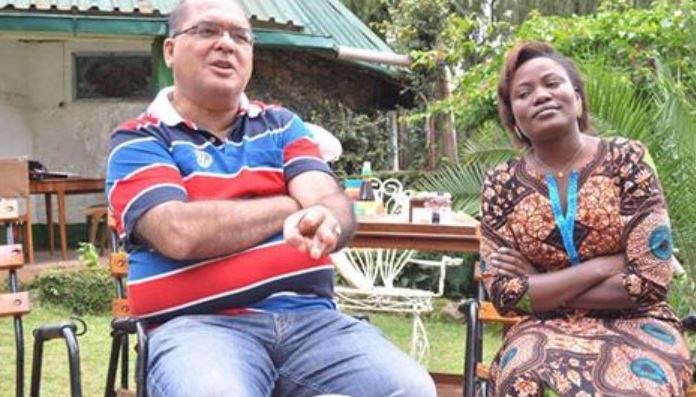
Before marrying his Bukusu darling, Shakeel was married to an Asian woman who asked to leave the marriage because she did not want to be in a polygamous union.
The father of six spoke to The Nairobian about his intermarriage, his strained relationships with fellow Asians and more.
You have this irresistible chemistry with your Bukusu darling. Clearly, you two are so in love. Match made in heaven, perhaps? How did you two meet ?
I met my girl in 2002 when I was Kisumu mayor. We shared an office, got to know each other, and later begun to date till 2013 when I married her. I paid bride price as the Bukusu culture dictates. Former Kabuchai MP, the late James Lusweti accompanied me for the negotiations.
Your marriage must have caught many by surprise. How was it received by your Asian community?
It cost me some Asian friends. Before I married my Bukusu wife, I introduced her to my family, and my mother had no qualms about it. So, I did not care about what other people were saying. I am a Muslim Asian, and I married her in line with the Muslim culture. There are so many Asians who have married Africans, and I do not know why my case attracts a lot of concern.
Most mothers are choosy about whom their son will marry. How come your mum didn’t bring any drama?
My mother worked with Action Aid within Korogocho community where she interacted extensively with vulnerable members of our society. This made her quite liberal and very dynamic. When she heard that I wanted to marry an African woman, she approved without blinking an eyelid. In fact, she encouraged me to follow my heart.
Why the big fuss over intermarriage between Asians and Africans?
The Asian community must stop living in a vacuum. When their daughters reach their teens, and this is the time to explore, they lock them up in their houses. This makes some of them reach out to the (domestic) workers and the gardeners, and when they get intimate, the same parents destroy the lives of young men by accusing them of raping their children. But it does not end at that, they again take the girl back to India and some suffer to death. We need to be liberal.
How did this marriage affect your first marriage?
I am a Muslim, and polygamy is acceptable in the Muslim faith. Islam allows a woman who does not want to stay in a polygamous marriage to ask to be released. My first wife asked to be released. We parted mutually.
How big is your family at the moment?
My first marriage to an Asian woman bore me two children who are now adults. With my second wife, we have quadruplets – three boys and a girl. Note that I am the only member of Parliament with quadruplets (thumping chest with pride).
Have you ever faced rejection for marrying an African woman?
One time, I had visited an Asian friend together with my wife, and when it came to mealtime, they served my wife tea in a different cup, which I did not like. I no longer visit my Asian friends. Only a few of them visit me. One day, I was out with my wife, and we had our children, and an Asian friend mistook her for my nanny. But we have a way of going over such challenges as a family.
How are you bringing up your children given the cultural clash between you and your wife?
We are raising them together, and all of them have Luo, Luhya and Muslim names. We speak Luo, Luhya, Kiswahili, English, and my Urdu language with them. We want them to grow with virtues which have no racial or tribal inclination.
You have previously claimed that members of your Asian Community were after your life. What was the matter?
Sometime in 2007, during the post-election violence, I stepped up to evacuate a number of people who were trapped in violent areas of Kisumu. I went ahead to help in collecting bodies of those killed during the violence, and giving food to those who were rendered with nothing to eat.
A number of my Asian brothers approached me, and claimed that I was being too African, and that they had lost their property to destruction and looting, and I needed to use my position to have them compensated too. I declined the call. They had not lost their loved ones. None of them was injured, or displaced. I told them I would focus on the most vulnerable groups, and this was the beginning of my problems. Some called me and threatened to kill me, claiming I was a disgrace to the Asian community, but I did not bother.
How do you balance your time between your Asian family and your African family?
It is good that my two children from my first marriage get along with my wife. I have however reduced visits to the homes of my Asian friends, and we focus on our family, and the work I do for my people in Kisumu East.
How do you balance work and the young family?
My work is well cut out. My roles are very clear as a member of Parliament. When not in session, I spent the rest of my time at home with my family and with the people of Kisumu East listening to their concerns and helping to come up with solutions.
From your sentiments on members of your Asian community, how do you gel with them in your political life?
(Laughing) Asians are my greatest opponents in politics. They hate me. I would not say it is because of my wife, but because I have not been giving in to their demands of preference. And that is why they accuse me of being more of an African. But I do not regret it.
What keeps you going?
I just focus on my family, and my people of Kisumu East. I do not care about what other people say, and we do not visit people so often these days. A few friends visit us, and my wife is flexible and accommodative.
